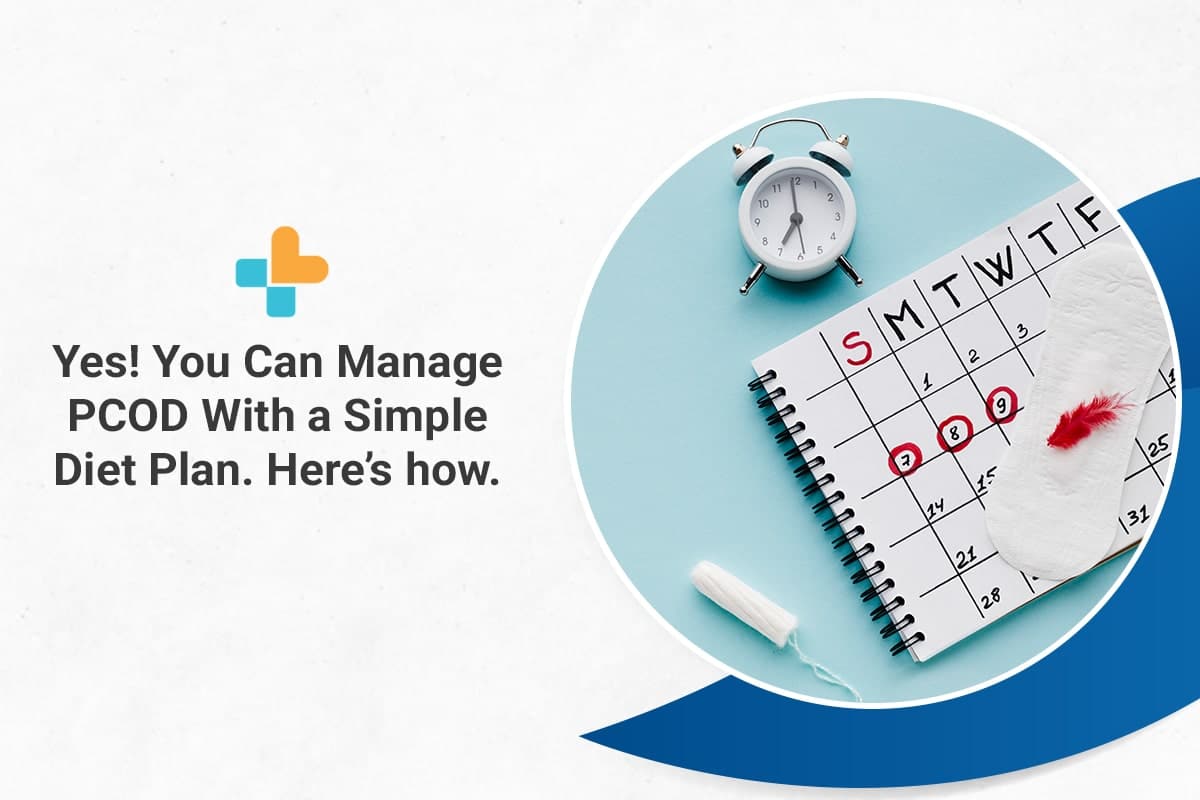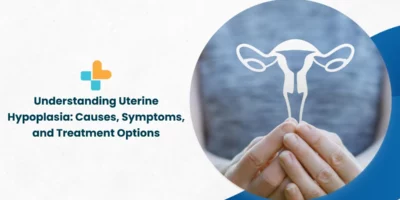PCOD (Polycystic Ovarian Disease) is a disorder of the reproductive system that is seldom talked about and considered taboo in India. This is primarily due to the lack of knowledge about its symptoms and causes.
Knowing very little about PCOD will almost certainly delay an early diagnosis, which is critical for receiving essential treatments. In this blog, we’ll understand the signs and symptoms of PCOD, as well as how you can manage its symptoms by adding and avoiding specific food items.
What is PCOD?
PCOD occurs when the ovaries release a large number of immature or partially developed eggs which turn into cysts over time. As a result, the ovaries grow large and secrete a lot of male hormones (androgens). PCOS (Polycystic Ovarian Syndrome) is the term used to refer to the complications that arise due to the higher levels of androgen, which disrupt egg development and ovulation.
Symptoms of PCOD
The most prevalent signs and symptoms of PCOD or PCOS are as follows:
- Irregular menstrual cycles
- Hair loss
- Excessive hair growth over parts of face and body
- Weight gain
- Infertility
- Skipped/absent menstruation
*PCOS is a more serious condition that requires treatment based on the situation and symptoms present, whereas PCOD is a milder condition that can be managed by diet and exercise.
Treatment for PCOD
PCOD treatment typically focuses on solving specific symptoms, such as irregular periods, obesity, infertility, acne, hirsutism (excessive hair growth), etc.
Weight loss, nutrition, and exercise are usually the first steps in treatment. Losing even 5 to 10% of your body weight will help you get your menstrual cycle under control. One of the most recommended solutions to control the symptoms of PCOD is following a balanced diet. It reduces the chances of developing chronic diseases associated with PCOD like obesity, diabetes, endometrial cancer, etc.
PCOD Diet
The best diet plan will help you manage your weight and lower the risks of any long term diseases. Below mentioned are a few do’s and don’ts to help you plan a perfect diet routine.
Must-Have foods
- High Fiber Vegetables:
Broccoli, sweet potato and cauliflower are some of the examples of high fibre vegetables. These foods will help you manage your blood sugar levels.
- Pulses:
Chana dal, soybeans and chickpeas are some pulses you can consume. Pulses are low glycemic foods and thus prevent your blood sugar level from rising.
- Whole grain:
Brown rice, oats and barley are some examples of whole-grain food products that you can consume. Since they are rich in fibre and contain lots of carbs, they take a longer time to digest, thus helping to maintain your blood sugar levels.
- Lean proteins:
They have less saturated fat and dietary cholesterol but are rich in protein. Some examples of lean proteins include egg whites, shrimp, tofu and curd. These proteins are important because they’re involved in the production of hormones including testosterone, estrogen, and insulin.
- Spices and herbs:
Tulsi, basil, cinnamon, etc. helps regulate insulin levels which is very crucial for women with PCOD. So adding flavour to your food by adding these antioxidant spices helps your body fight off several symptoms of PCOD.
Foods That Can Be Avoided
- Vegetable oils:
It is important to avoid vegetable oil and choose healthier alternatives like coconut oil, ghee, olive oil because vegetable oils are heavily processed and their high omega-6 fatty acid ratio can be inflammatory for women with PCOD.
- Sugary food:
Foods that are loaded with sugar like Kulfi, Gulab Jamun, Halwa etc. must be avoided at all costs. Besides being loaded with sugar, they are also high-calorie items that can have a very negative impact on women with PCOD.
- Fried/processed food:
Fried and/or processed foods like french fries, samosas, white pasta, etc. are stripped of their original nutrient content and are high in saturated and hydrogenated fats; all of which are unhealthy and even more so for women with PCOD.
- Alcohol:
Mixed drinks, sweet wine, beer etc. are known to hinder our bodies sugar and insulin levels. This can be quite harmful to women suffering from PCOD.
Having said that, a healthy diet and daily exercise can only help manage symptoms of PCOD. If these symptoms persist even after making necessary lifestyle changes it’s important that you talk to your gynaecologist to understand the cause and try other alternatives.
Also Read : 12 Effective ways to strengthen your Immunity Naturally
If you’re seeking a specialized gynaecologist to discuss different treatment options and choose the ones ideal for you, please visit our website or contact +91 – 6366 100 800 to schedule an appointment.Ayu Health in Bangalore and Chandigarh provide the best doctors, technology, and care.
Our Hospital Locations
Gynaecology Surgery Hospitals in Chandigarh | Gynaecology Surgery Hospitals in Bangalore | Gynaecology Surgery Hospitals in Jaipur | Gynaecology Surgery Hospitals in NCR | Gynaecology Surgery Hospitals in Hyderabad
Our Doctors
Gynaecology Surgery Doctors in Chandigarh | Gynaecology Surgery Doctors in Bangalore | Gynaecology Surgery Doctors in Jaipur | Gynaecology Surgery Doctors in NCR | Gynaecology Surgery Doctors in Hyderabad
About the Author

Dr. S. Goel
Dr. S. Goel is a renowned Internal Medicine Specialist currently practicing at Ayu Health, Bangalore. He is a Specialist in Internal Medicine, Diabetes HTN, Paediatric Care, and Family Medicine.




